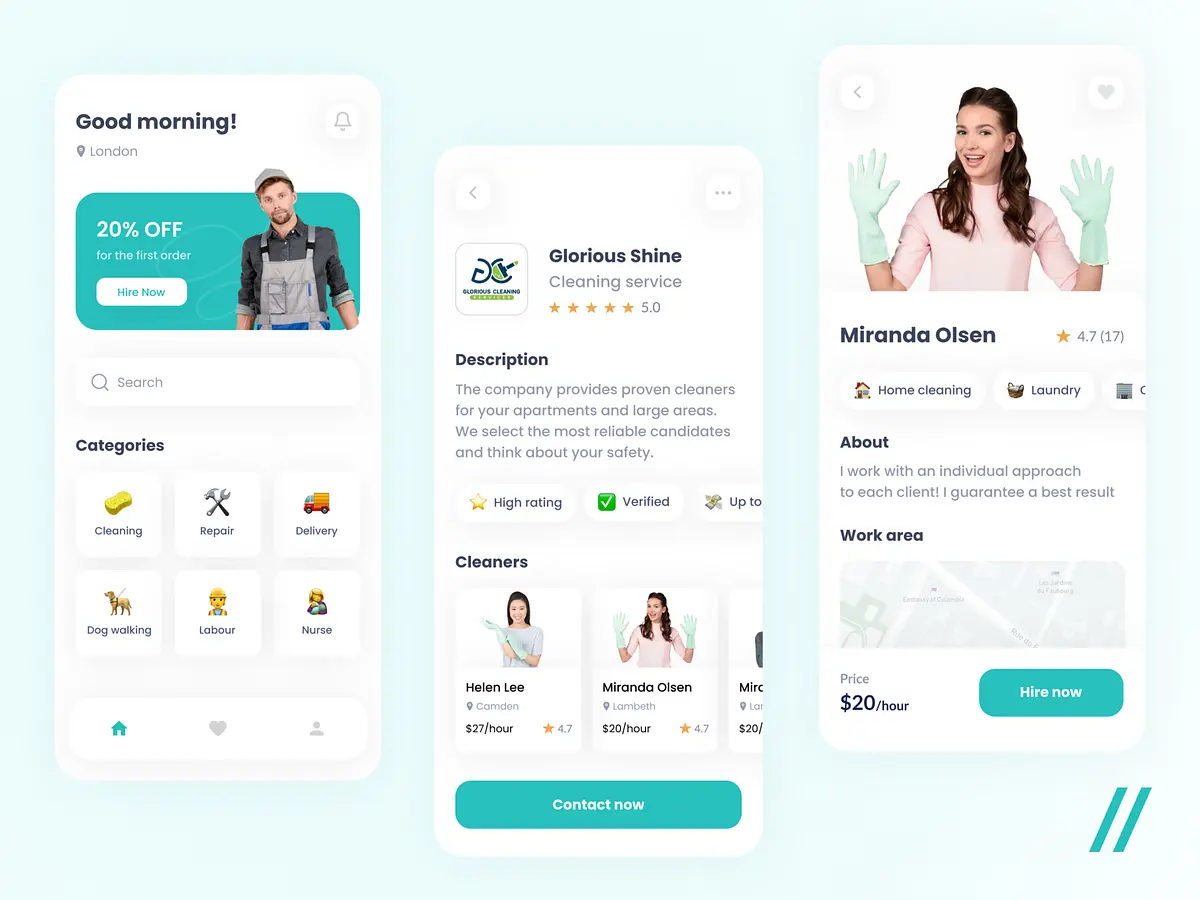What is PostgreSQL and Everything You Need to Know


PostgreSQL has been a significant player in how companies handle data collection, management, storage, and analysis for over five years. This open-source relational database brings enterprise-level benefits, attracting major companies like Netflix, Instagram, and Spotify, as noted by StackShare.
So, what benefits are these companies enjoying, and why should the choice of database matter to your business? Here’s a quick guide to understand what is PostgreSQL, what is PostgreSQL used for…. just for you.
PostgreSQL is an advanced, open-source relational database management system (RDBMS) emphasizing extensibility and SQL compliance. It was developed at the University of California at Berkeley Computer Science Department and has been actively improved by a vibrant and experienced community since its initial release in 1996.
PostgreSQL is built to support diverse workloads, from single machines to large data warehouses and web services with multiple users. It includes support for complex data types and performance improvement features, enabling it to manage complex queries, big data, and high concurrency. PostgreSQL is well-known for its proven architecture, reliability, data integrity, robust feature set, and dedication to open standards, which is why it serves as the main data repository or data warehouse for numerous web, mobile, geospatial, and analytics applications.
More SQL-related articles:
An In-Depth Look at PostgreSQL vs. Oracle for Database Management
Postgres is an ORDBMS
Postgres is an ORDBMS, which stands for Object-Relational Database Management System. It handles complex data and can easily store and pull up objects. Unlike traditional databases that deal with straightforward data, Postgres can manage more complicated stuff and has better tools for digging through it.
Compared to NoSQL databases, which are all about handling huge amounts of data that don’t fit neatly into tables, Postgres offers some cool advantages. NoSQL focuses on being fast and flexible, sometimes sacrificing how consistently data is stored. Postgres, on the other hand, makes sure your data stays consistent without giving up on flexibility.
One of the coolest things about Postgres is its support for JSON and similar data types. This makes it super useful for projects that mix and match structured and unstructured data. Plus, you can customize Postgres with your data types and functions, allowing you to model your data just how you like it. With its strong indexing, Postgres can quickly find and retrieve your data, no matter how complex it gets.

PostgreSQL
Foreign Data Wrappers
Foreign Data Wrappers (FDWs) in Postgres are beneficial for several reasons:
ACID Compliance
Postgres nails the ACID compliance checklist with atomicity, consistency, isolation, and durability, ensuring your database transactions are rock solid.
Extensibility
This database is flexible—like a Swiss Army knife for data. You can add custom functions, operators, and more, tailoring it to your needs.
High Performance
When handling massive data volumes and complex queries, Postgres doesn’t just keep up; it leads the pack.
SQL Compliance
For those who speak SQL, Postgres speaks it fluently, making it a breeze for developers and analysts to get on board.
Concurrency Control
With multi-version concurrency control (MVCC), Postgres lets multiple transactions access the same data simultaneously without headaches.
Advanced Indexing
Whether it’s B-trees, Hash, or GIN, Postgres offers a variety of indexing options to speed up data retrieval.
Replication and High Availability
With support for synchronous and asynchronous replication, Postgres keeps your data safe and your system running smoothly.
Advanced Security
Postgres steps up the security game with role-based access control, data encryption, and secure connections.
Data Warehousing and Business Intelligence
Ideal for crunching numbers and data visualization, Postgres is a go-to for data warehousing and business intelligence.
Community-Driven Development
Behind Postgres is a vibrant community constantly pushing the envelope on development and maintenance to ensure it stays top-notch.
Have a Project Idea in Mind?
If you want to elevate your projects with reliable, professional support, contact TECHVIFY today and discover how we can help you achieve your goals precisely and excellently
PostgreSQL brings multiple benefits if you use it right; here’s a brief:
Choosing PostgreSQL (Postgres) for your database needs depends on various factors and scenarios where its unique features and capabilities come into play. Here’s a guide on when to opt for Postgres, drawing from multiple online sources:
If your project involves handling a wide variety of data types or requires the storage of complex, nested data structures, Postgres is an excellent choice. Its support for JSON, XML, and custom data types and its ability to perform sophisticated data manipulations makes it ideal for applications beyond simple CRUD operations.
Postgres’s robust transaction management and locking mechanisms ensure data consistency and reliability for applications that must support many concurrent transactions without sacrificing performance—such as online marketplaces, financial platforms, or social networks.
When building services that need to scale dynamically in response to user demand, Postgres’s scalability features, including read replicas and connection pooling, help manage increased loads efficiently. This is particularly relevant for growing SaaS applications or e-commerce sites.
Projects that cannot afford data inaccuracies, such as financial accounting systems or patient records management applications, will benefit from Postgres’s strict adherence to ACID properties and its comprehensive data integrity constraints.

When to use PostgreSQL
For applications that require geospatial data processing—like mapping services, location-based advertising, or environmental monitoring—Postgres, with its PostGIS extension, offers powerful spatial database capabilities.
Organizations operating under strict regulatory frameworks or those prioritizing data security will find Postgres’s advanced security features, including encryption, role-based access control, and detailed audit logging, to be of significant advantage.
Postgres is well-suited for cloud-native applications. It offers compatibility with major cloud providers and seamless integration with containerization and orchestration tools like Docker and Kubernetes. This makes it a solid choice for projects leveraging cloud technologies for flexibility and scalability.
When the project requirements include custom functionalities or the ability to extend the database capabilities, Postgres’s extensible architecture allows developers to introduce new data types, functions, operators, and more, tailoring the database to specific needs.
PostgreSQL is a powerful, open-source database system known for its reliability, flexibility, and strong feature set. It’s perfect for everything from small projects to large-scale applications, thanks to its ability to handle complex data, ensure data integrity, and scale with your needs.
Need expert help to make the most out of PostgreSQL? TECHVIFY has got you covered. Our experienced team can help you with everything from setup and customization to optimization and maintenance.
Contact TECHVIFY today for top-tier PostgreSQL services and take your database management to the next level.
TECHVIFY – Global AI & Software Solutions Company
For MVPs and Market Leaders: TECHVIFY prioritizes results, not just deliverables. Reduce time to market & see ROI early with high-performing Teams & Software Solutions.
PostgreSQL is an object-relational database management system (ORDMBS) that blends the strengths of relational databases with an object-oriented approach. This setup lets developers interact with database servers through objects in their programming code and create intricate custom data types.
Advantages:
Disadvantages:


Table of ContentsUnderstanding PostgreSQL Key Features and Benefits of PostgreSQL PostgreSQL Features Benefits of PostgreSQL When to Use PostgreSQL Complex and Varied Data Types High-Concurrency Environments Scalable Applications Stringent Data Integrity Requirements Geospatial Data Handling Regulatory Compliance and Data Security Cloud-Native Development Extensibility and Customization Conclusion FAQs What is PostgreSQL Database?What are PostgreSQL’s advantages and disadvantages? Technological advancements are paving new paths for companies across different sectors, and the logistics industry is no exception. According to a survey by Gartner, 87% of supply chain professionals plan to invest in enhancing the resilience of their platforms. Logistics encompasses a broad and complex array of processes that demand the utmost precision and continuous optimization. Companies can automate…
26 July, 2024

Table of ContentsUnderstanding PostgreSQL Key Features and Benefits of PostgreSQL PostgreSQL Features Benefits of PostgreSQL When to Use PostgreSQL Complex and Varied Data Types High-Concurrency Environments Scalable Applications Stringent Data Integrity Requirements Geospatial Data Handling Regulatory Compliance and Data Security Cloud-Native Development Extensibility and Customization Conclusion FAQs What is PostgreSQL Database?What are PostgreSQL’s advantages and disadvantages? The technology sector is advancing at an unprecedented pace, and the HR landscape is evolving right alongside it. To attract top talent, HR professionals and organizations need to stay ahead of emerging technology hiring trends. This year, we are witnessing significant shifts in hiring practices that will redefine our understanding of the future workforce. According to a Microsoft study,…
25 July, 2024

Table of ContentsUnderstanding PostgreSQL Key Features and Benefits of PostgreSQL PostgreSQL Features Benefits of PostgreSQL When to Use PostgreSQL Complex and Varied Data Types High-Concurrency Environments Scalable Applications Stringent Data Integrity Requirements Geospatial Data Handling Regulatory Compliance and Data Security Cloud-Native Development Extensibility and Customization Conclusion FAQs What is PostgreSQL Database?What are PostgreSQL’s advantages and disadvantages? Customized software plays a major role in managing various tasks within the telecom industry. It is essential for allocating numbers to subscribers and managing networks through optimized and AI-enabled routing protocols. Additionally, it aids in detecting fraud with intelligent telecom software development solutions and maintaining detailed subscriber profiles, including comprehensive call recording reports. I. A Quick Look into the…
24 July, 2024


Thank you for your interest in TECHVIFY Software.
Speed-up your projects with high skilled software engineers and developers.
By clicking the Submit button, I confirm that I have read and agree to our Privacy Policy